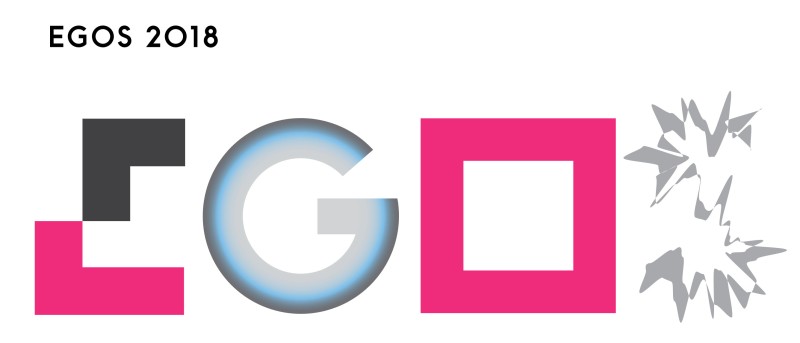Sub-theme 41: Gaming the Metrics in the Age of Big Data ---> Merged with sub-theme 15
Call for Papers
Metrics are reshaping 21st century organizations, often in a surprising and unexpected ways. Metrics are widely used to
set performance targets, assess risks, allocate resources, and monitor standards. Sophisticated information technologies,
and the rise of big data, have transformed metrics from useful tools into powerful system of directing and controlling action.
Metrics in the form of rankings, league tables, and lists of best sellers, are now a media staple that notwithstanding their
opaque methodologies, and all too often conflicting interpretations, lend legitimacy to organizational actions. Public
policy debates increasingly revolve around the success or failure in meeting metrics, often at the expense of deeper examination
of causes and remedies.
The ubiquity of metrics has also given rise to widespread gaming; to routines and
strategies that seek to circumvent and manipulate metrics. Gaming the metrics sometimes extends to gaming the process of metrics
settings as well. Thus, actors may seek to reinforce their power by shaping the rules that define metrics, as well as the
systems that control the collection and interpretation of the information that metrics generate. When, as sometimes is the
case, multiple metrics vie for attention and influence, gaming often takes the form of using contradictions and tensions among
metrics to escape compliance with standards that may be crucial to health, safety, and well-being. At the extreme, metrics
are sometimes gamed by managers and policy makers to impose, but at times also to circumvent, draconian steps such as layoffs,
wage cuts, and dismantling of vital public services.
Across a wide range of markets, the proliferation of
rankings, and their wide availability via the internet, is changing how consumers make their choices, and this in turn is
creating new competitive pressures. Faced with the increasing influence of rankings on consumer behaviour, organizations regard
a race to the top of rankings as a strategic imperative, adjusting their strategy as consumers shift their purchases in line
with how well the organization’s products are doing in the ranking. The same pressure is increasingly felt also in the public
sector where education and even healthcare choices are strongly influenced by rankings compiled by private and public organizations.
Once the preoccupation mostly of for-profit organizations, the production of rankings has become part of how governments evaluate
services and allocate resources. Organizations in the public sector that derive most of their funding from government therefore
find themselves increasingly resorting to the kind of gaming behaviour that has hitherto been more common in the private sector,
with impact on ethos of service that is potentially even more negative.
Gaming in all its forms runs the
gamut from the legitimate if questionable, to the outright non-legitimate and illegal. It is the background to many contemporary
scandals, costing multiples of billions of euros in costs, and undermining norms and decreasing public trust. Many of the
corporate scandals that have hit the headlines over the past decade are directly related to gaming behaviour. These scandals
are prominent examples of gaming metrics that slides into illegality, but low level gaming by firms, educational institutions,
and public service providers that is more local is regularly uncovered by the media and by governments.
In
spite of the increasing pervasiveness of gaming of metrics by individuals and organizations, in the private as well as the
public sector, the study of this practice – the ‘hows and whys’ of gaming – remains relatively fragmented and under-theorized.
This subtheme is dedicated to bringing together researchers who are interested in how gaming of metrics arises, and how it
is comes to be practiced by organizations, business units, and individuals in the private as well the public sector. In addition
to scholars who work in organizational and management research we also welcome scholars who work in areas such as ethics,
public policy, accounting, information systems, law, and technological innovation.
With this in mind, we invite
papers that …
examine the origins of metrics
look at the relationship between metrics and power
look at the motives and rationale for gaming of metrics
identify and classify different types of gaming behaviour
look at how individuals and organizations game the rules whereby metrics are set and used
examine gaming of metrics as resistance that has positive consequences to the organization or society, and papers that look at gaming of metrics as self-seeking behaviour
look at how gaming of metrics emerges and the organizational, institutional, and social forces that sustain gaming behaviour
look at the diffusion of gaming behaviour within organizations and sectors
look at how gaming becomes normalized in organizations and society
look at why some metrics gain compliance from individuals and organizations while others fail to gain acceptance
examine how metrics become embedded within competing narrative interpretations of performance or outcome
look at how gaming of metrics leads to corruption and criminal conduct
look at how gaming of metrics that is legal but not regarded as legitimate, is reclassified as illegal
look at quantitative and qualitative methods for studying gaming of metrics


